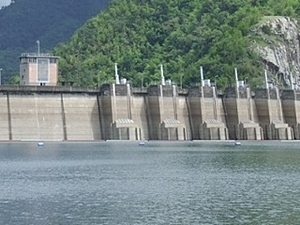BANGKOK, July 3 — The Cabinet on Tuesday approved a Bt300 billion budget to hire a consortium to manage Thailand’s overall water management and flood prevention projects, and the terms of reference (ToR) for hiring Thai and foreign consultants was also approved, Science and Technology Minister Plodprasop Suraswadi said.
Mr Plodprasop, who also chairs the Water Resources Management and Flood Control Committee (WRMFCC), told a news conference after the weekly Cabinet meeting that after the approval, the government will publicise the details through varied media to invite Thai and foreign companies to join the selection.

The Foreign Ministry will be assigned to invite foreign firms, he said, adding that the ambassadors of foreign missions in Thailand will be invited to be briefed on the matter this week.
The government will use Bt300billlion to finance the flood and drought prevention and water resource management projects, the minister said.
The projects will be divided into14 major projects – eight located in the Chao Phraya River Basin and six projects are situated in six other river basins, he said.
Under the ToR, a qualified consultant should have worked on a project valued at more than Bt30billion with any government. The interested companies may collect documents which will be available at the Science and Technology Ministry next week.
The minister said that the government will work over the projects transparently and foreign firm would be invited because the government needs advanced technology for water management.
Every country will have equal opportunity to be selected as the consortium for the projects, he said.
After the selection, consultants will have to put forward their plans in three months. After the plan selection, project designs will take four to five months, followed by cost appraisals. Construction is expected to start next year.
The projects would cover rehabilitation plan for reservoirs, canals, water sluice gates, emergency response plans, water retention areas, water diversion, town planning, and the establishment of new organisations such as a water ministry.




